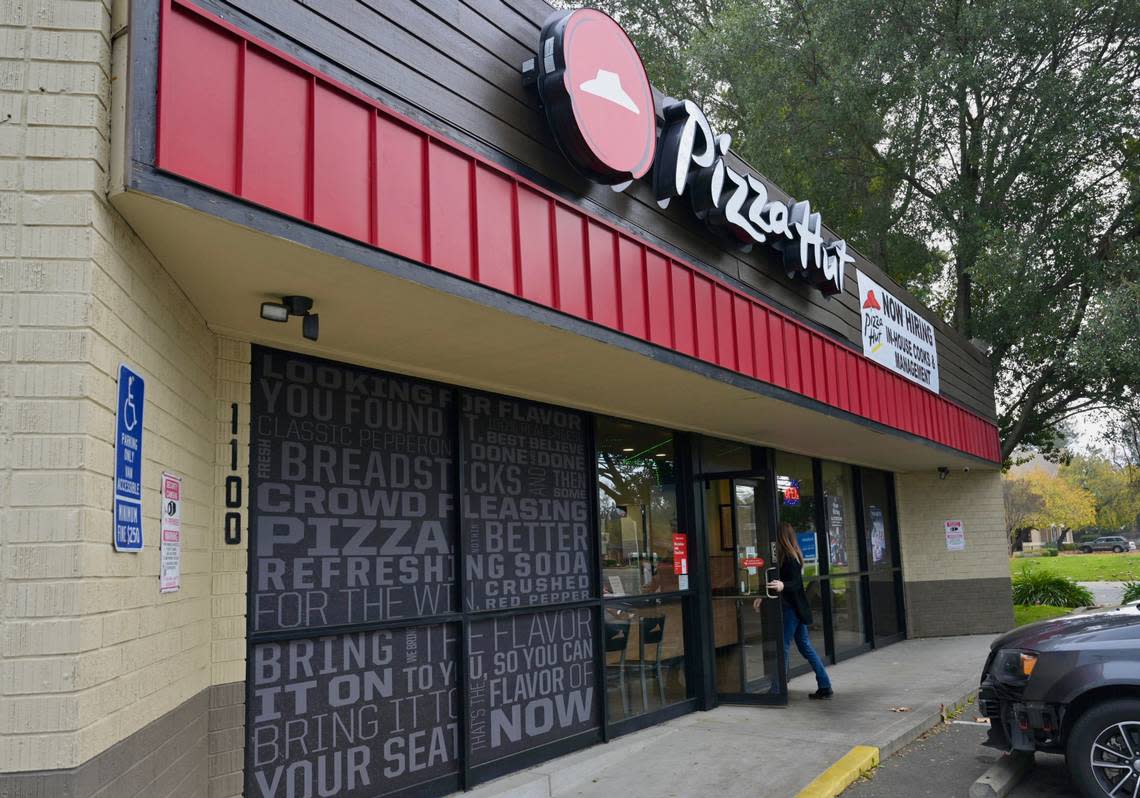Democrats wanted higher fast food wages. Prepare for higher prices and automation | Opinion

When the Pizza Hut chain recently announced it planned to lay off its 1,200 delivery drivers across the state, it launched what may be a fast evolution of California’s fast food industry.
Gov. Gavin Newsom and the California Legislature have uniquely targeted this industry for a minimum wage increase of $20 an hour come this April. Fast food became the target of the powerful Service Employees International Union labor. It scored a significant win last year by pushing through this wage increase. But now what?
Opinion
Any time Sacramento decides to impose new costs or regulations on an industry, change is a given. Californians should brace for some combination of higher prices, fewer fast food employees and more automation as machines are poised to play a bigger role behind the burger.
In some ways, we set the course for this future entirely upon ourselves. It is in San Bernardino, after all, where Maurice and Richard McDonald launched the idea of a restaurant that could quickly serve a hamburger. The birthplace of this industry is simply too resisting of a legislative target for Democrats to seek higher wages for its employees.
While McDonalds is now a global burger empire, in California, an estimated 96 percent of its locations are owned by 15,000-some franchisees. Nearly a third are owned by minorities. With some notable exceptions, much of California fast food is produced by small businesses. And now they have to figure out how to deal with higher costs.
“It’s not sticking it to corporate America, so to speak,” said Matthew Haller, chief executive officer of the International Franchise Association, which represents more than 1,400 franchise brands in the nation. “It’s going to squeeze smaller companies more than it is going to squeeze large corporate-owned chains.”
The passage of Assembly Bill 1228 by Chris Holden, D-Pasadena, marked a compromise of sorts among the industry, governor, Legislature and labor on minimum fast food wages. The first increase to $20 an hour comes this April. Subsequently, a new appointed council will periodically review and adjust minimum wages going forward. California’s minimum wage for other industries is $16 an hour.
Pizza Hut’s first move is politically delicious in how the Legislature cannot do anything about it. Out of Sacramento’s control is the wages of the future transporters of the chain’s pizza, the food delivery service companies like DoorDash and Uber Eats. Overthrowing existing legislation, California voters in 2020 passed Proposition 22, declaring these delivery employees as independent contractors as opposed to corporate employees earning wages.
“Third-party delivery platforms should add proponents of the Fast Food law to their holiday card list,” said Jot Condie, chief executive officer of the California Restaurant Association. “This response to the unprecedented Fast Food law was entirely predictable.”
The Pizza Hut delivery drivers were uniquely vulnerable, according to Steve Stallman, president of the Food Consultants Group, based in Long Beach. “It is hard for any type of restaurant to offer their own delivery service,” he said.
The potential impact on price increases was a topic of long and unresolved debate in Sacramento as the legislative fight dragged on. A University of California, Riverside study commissioned by the industry predicts increases as high as 20 percent. Bill proponents cast doubt on those numbers. The debate is now over. We will all begin to know the answer as soon as April.
Automation, ranging from phone apps to kiosk machines for customers to code in their orders, marks an industry evolution that is already under way. McDonalds in Texas, for example, is testing a concept of delivering food not by a human being, but from a conveyor belt.
Haller expects the higher wage costs to accelerate the substitution of employees with new technology. And once again, California will be an industry pioneer for the nation, but perhaps not in ways that Newsom and the backers of the legislation intended.
If California fast food automates, the franchisors “want the customer experience to be identical” in any market, Haller said. “That could have an impact on employment nationwide.”
The bottom line is that California has made a policy choice to increase the wages of the employees in the state’s fast food outlets. And we will have to accept the changes, large or small, of that policy choice.
As for Pizza Hut, it can maintain its advertising slogan that “Nobody OutPizzas the Hut.” But in California, everybody is about to out-drive them.
